Inside the brothels that served the Western Front: How one First World War soldier found love in the arms of a French sweetheart
Theirs was an impossible relationship – the Welsh officer and his young French sweetheart. Yet when Lieutenant William Morgan's granddaughter discovered a biscuit tin of photographs from the Great War, it wasn’t the shots of their affair that shocked...
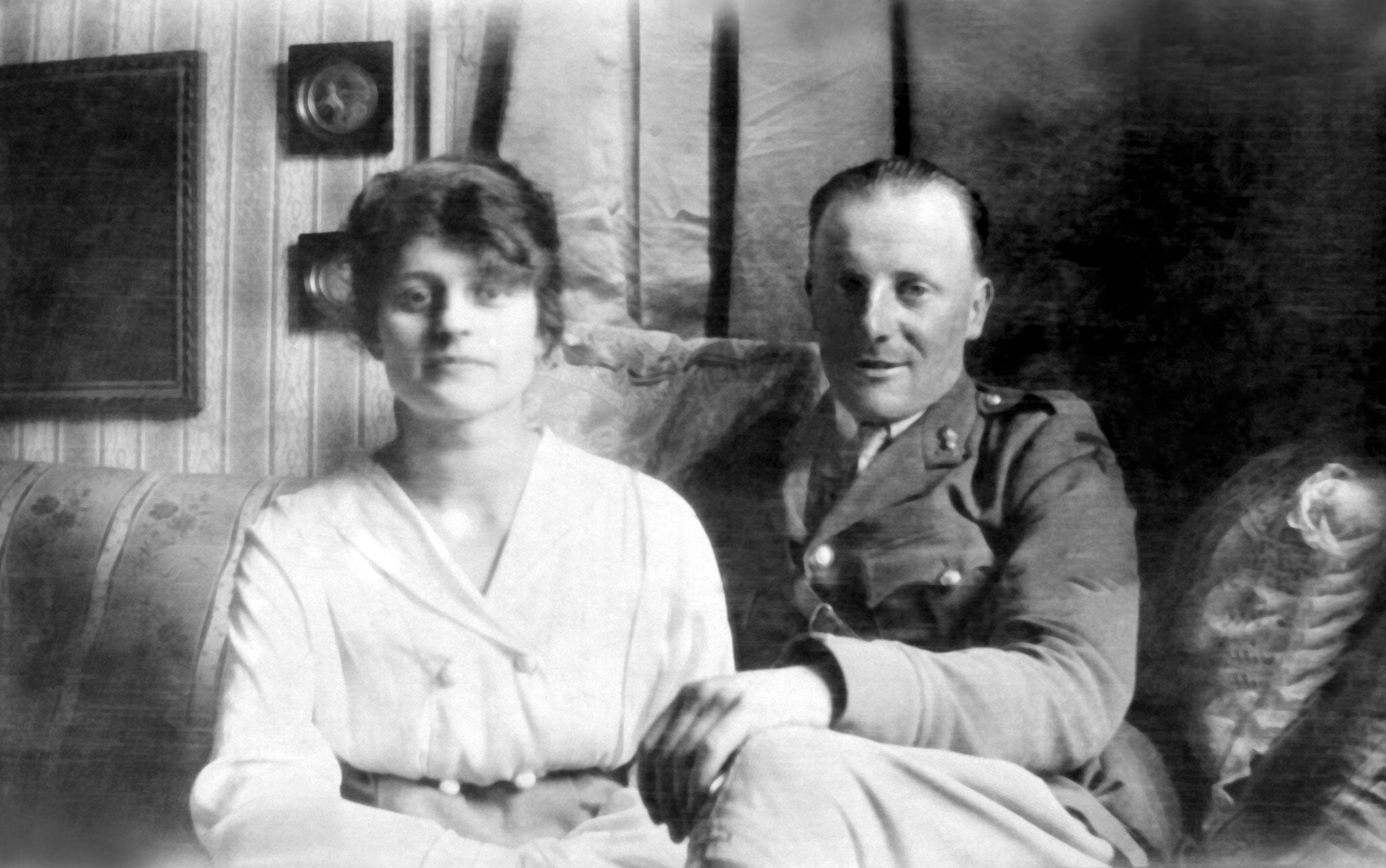
For 75 years, William Noel Morgan kept the negatives of his pictures from the First World War in a biscuit tin. They were never printed and never shown to his family.
A few years ago, when his daughter died, his granddaughter and her husband opened the tin. What they found helped to explain why "WN" had hidden the photographs – but also why he had kept them. The images include poignant and innocent scenes from Lieutenant Morgan's romance with a young French woman during 1917 and 1918. When he returned to Mountain Ash in South Wales after the war, the young officer's parents discouraged his plans to marry his French sweetheart. He gave way to their wishes, but wrote to her for many years and remembered her until his death, aged 92, in 1983.
The biscuit tin also contained amorous secrets of a quite different kind. A handful of photographs thrust aside the curtains that have traditionally screened one aspect of the horrendous war, which began a century ago tomorrow.
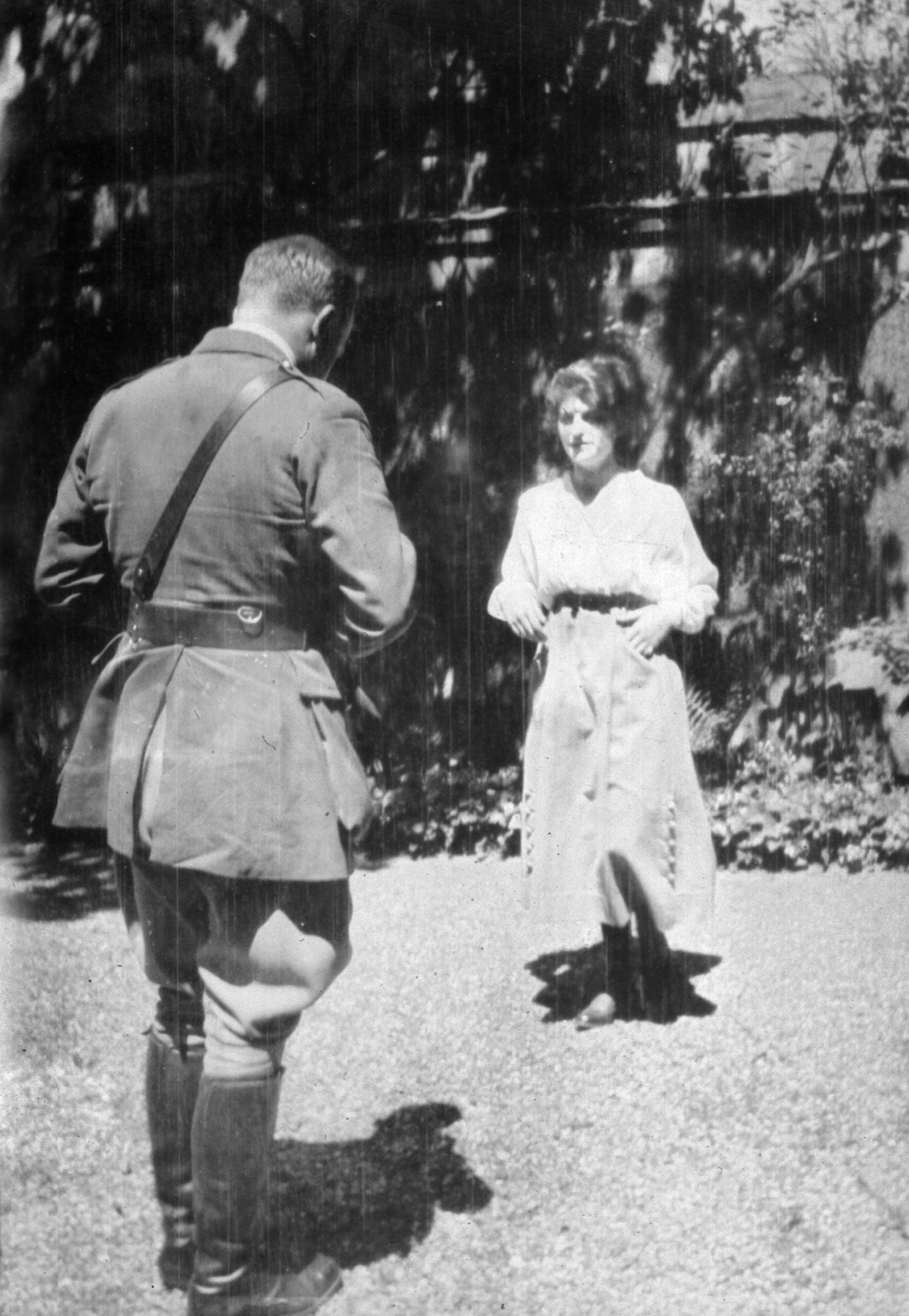
A sequence of a dozen images – also innocent in their own way – was taken by Lieutenant Morgan inside a French brothel known as a "maison tolérée" or "maison close". They are believed to be the only photographs ever to surface of British officers from the 1914-1918 war inside a "blue lamp" – the refined category of brothel reserved by secret edict of the British army for the officer classes.
There is nothing especially raunchy about the photographs, which we publish here for the first time. They show young British officers drinking and smoking and playing a battered piano in a room with naughty (for 1917-1918) drawings pinned on the walls. Other images show young women wearing, or half-wearing, mildly provocative clothes.
Dr Clare Makepeace, a British historian and expert on sexuality and prostitution in the War, describes the images as a "remarkable find, made all the more wonderful for being hidden away for so many years in something so everyday and mundane as a biscuit tin.
"These photos are so important in providing us with a more rounded picture of what life was like on the Western Front beyond the quagmire, the shelling and the slaughter," she adds.
"Visiting brothels was something that probably a significant number of British servicemen indulged in during the Great War, but only a handful wrote or spoke about these visits. Never before have I seen photos of them."
The brothel shots are only a fraction of the more than 100 images in William Noel Morgan's hidden collection. Others show young officers relaxing or larking around, like the schoolboys or university students they had recently been. There are shots of British soldiers and French railwaymen manning a railhead near the front lines of the Somme with a chalked notice stating, "Calais leave train, 10.55am."
There are photographs, too, of a beautiful young Frenchwoman who is believed to be Lt Morgan's lost love. She is seen with British officers on an outing to a chateâu. She is seen with what appears to be her twin sister. She is seen sitting with WN, as he was always known. She is seen having her photograph taken by him.
Other images show bridges and a railway station devastated by German shelling, and vast craters which appear too large to have been created by an artillery shell. Little detail is known of what Lt Morgan did during the war, but these images provide a clue.
He was a Royal Engineer and qualified surveyor. Before and after the war he worked, like his father and grandfather before him, as a land agent for Lord Aberdare, one of the largest landowners and mine owners in Wales. His other mementoes of the war included drawings of salients, or bulges, in the German positions.
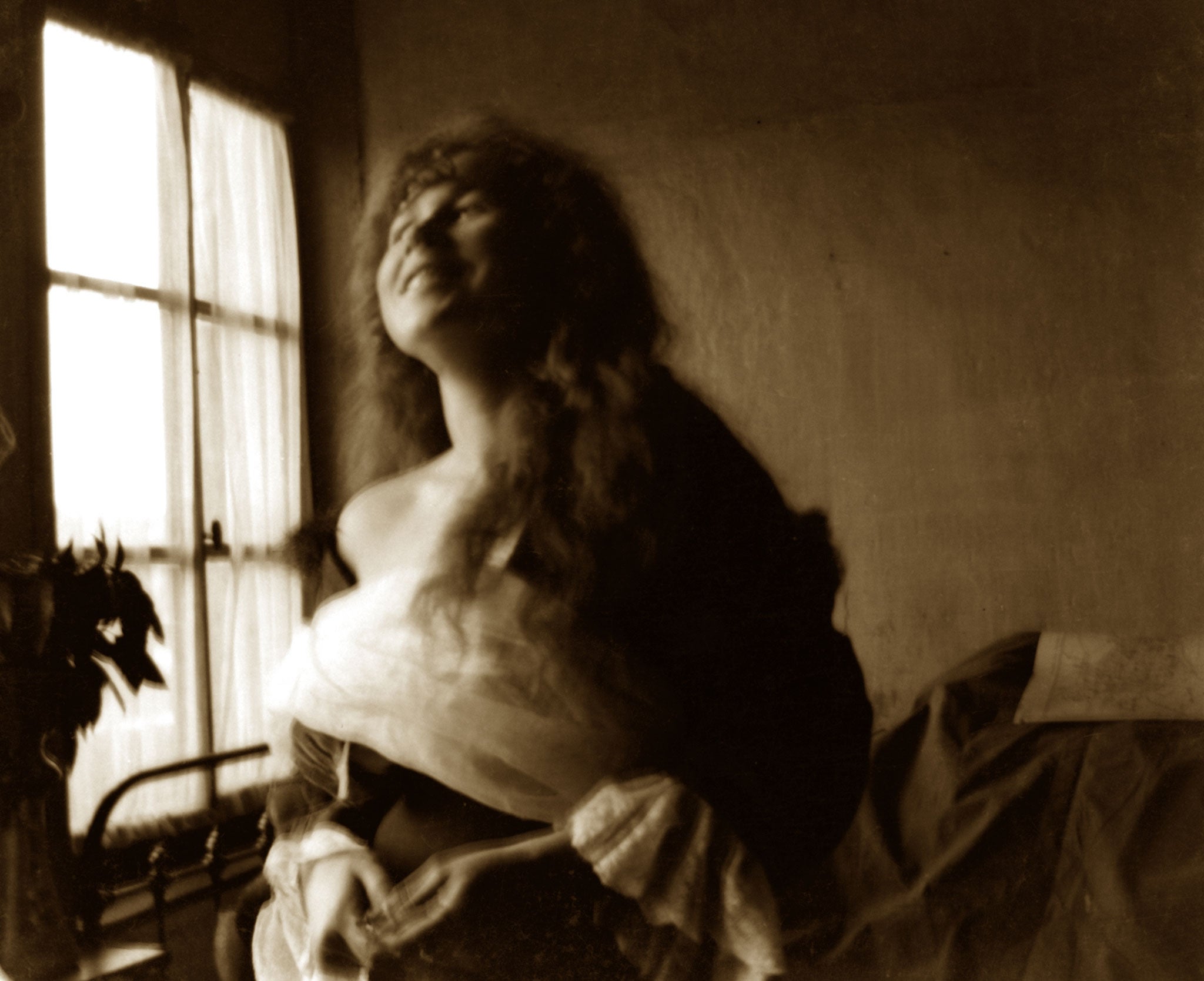
His unit – the 175th Company of the Royal Engineers – was a "tunnelling unit". According to his service record provided by the press team at the National Archives in Kew, WN applied specifically to join the tunnellers in 1915 and served in France until 1919. In other words, he took part in an intensely dangerous underground war – burrowing beneath No Man's Land to blow up the German trenches.
He told his family he had once been sent to a field hospital for de-lousing. When he returned, his whole unit had been killed, including several of his closest pals. WN always said after that his best friends were lice. They had saved his life.
"I have very fond memories of him," says Fran Gluck, Lt Morgan's granddaughter, who lives in Llanfair Caereinion in central Wales. "He never spoke about what he had done in the war, and we kick ourselves now that we never asked him about it. All we know is that he fell in love with a young woman in France and that his family apparently discouraged him from marrying her."
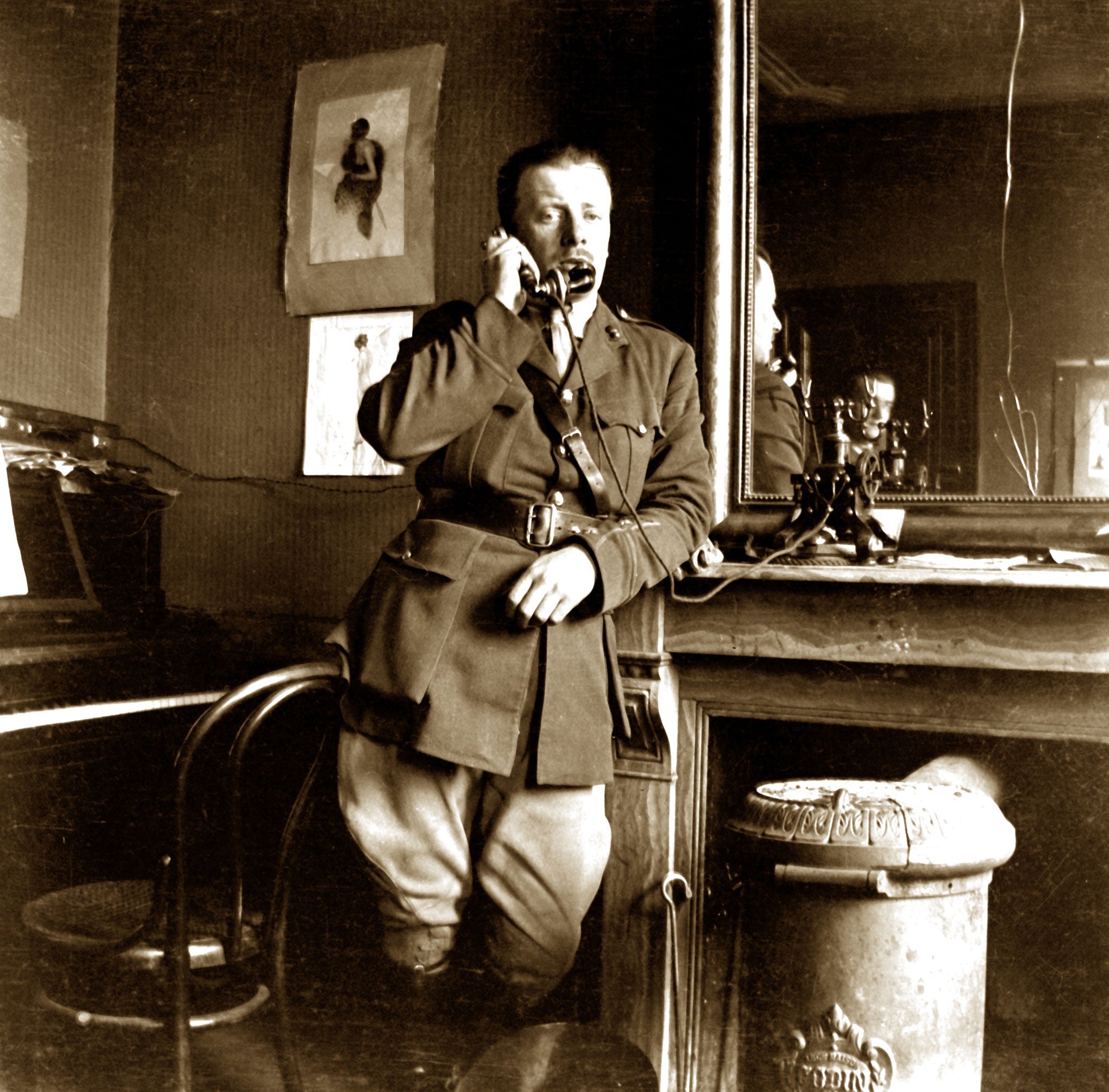
Fran's husband Jo digitalised and improved the quality of the images found in the biscuit tin. "They were on large negatives, about three-and-a-half inches square," he says. "As far as I know, they had never been printed out before.
"Maybe WN decided that they were better not seen – partly because of the images in the brothel but also because they contained pictures of the young woman in France that he was discouraged from marrying.
"I see no reasons why they should not be published now," he adds. "They show another side of the war, which should also be remembered. Attitudes to sexuality have changed so much in the past century that I see no reason why they should cause offence today."
Speaking of organised prostitution on the Western Front was long a taboo in Britain. One of the few to defy it was the poet and author Robert Graves in his celebrated autobiography Goodbye to All That. "There were no restraints in France," he wrote. "These boys had money to spend and knew that they stood a good chance of being killed within a few weeks anyhow. They did not want to die virgins.'
The misery of the trenches, and the fear of imminent extinction, appears to have dissolved the sexual inhibitions of tens of thousands of young men born in late Victorian Britain. "Other ranks" were restricted to crude "red-lamp" brothels. There are modern accounts of queues of British soldiers many yards long. According to one unpublished contemporary report, 171,000 British troops visited brothels in a single street in Le Havre in just over a year.
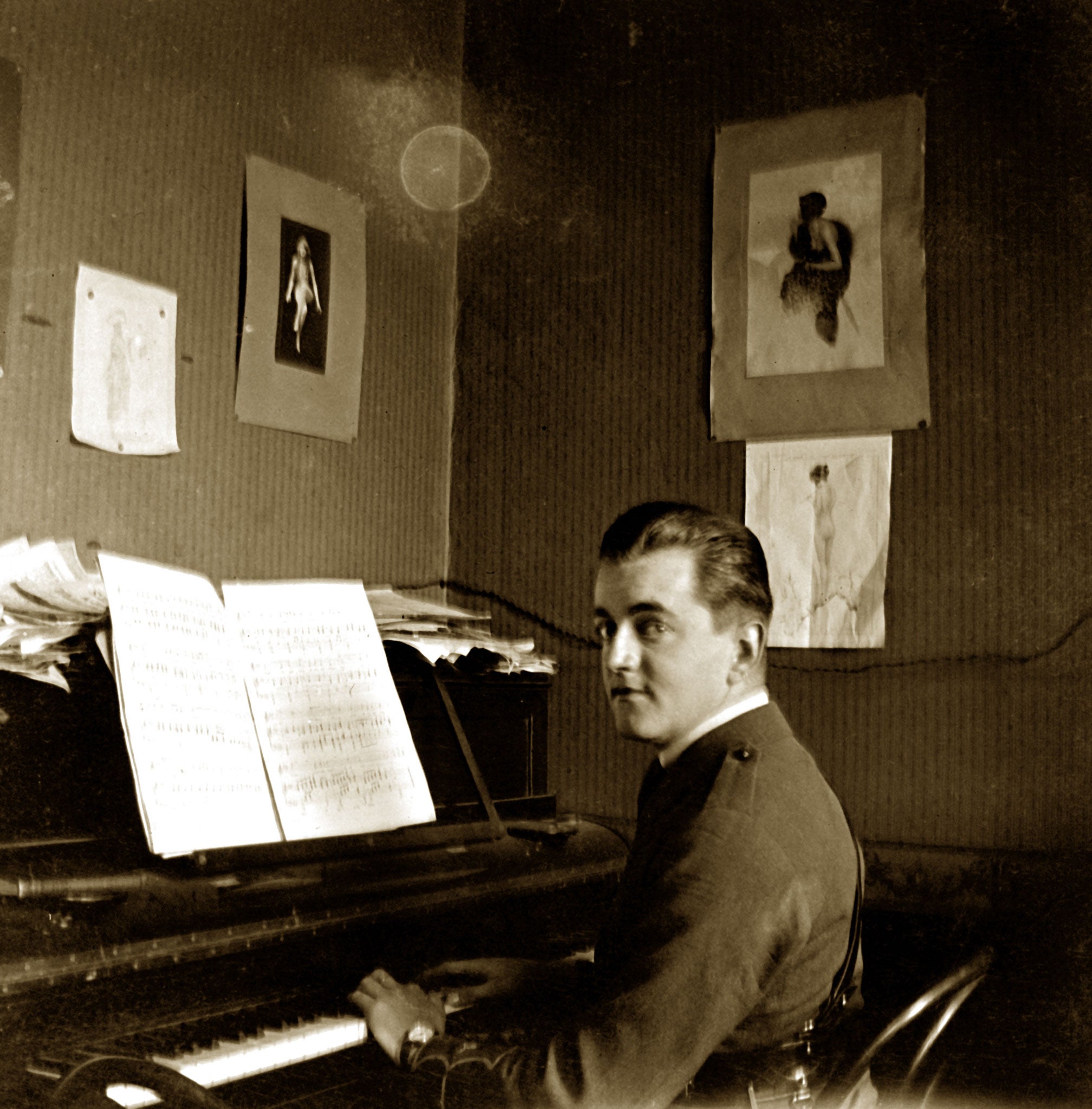
Officers, meanwhile, were officially allowed to use upmarket "blue-lamp" brothels but were "admonished" if seen sullying their uniform by consorting with prostitutes in public.
As a specialist on the cultural history of warfare, Dr Makepeace has written several studies of British troops' sexual experiences in France during the Great War; her work is based on 30 diaries, books and oral records left by British soldiers who defied the taboo on talking about sexuality on the Western Front.
The soldiers, she points out, often make an unconsciously Freudian connection between sex and mortality. "Men chose to visit brothels," she says, "either as a reward for surviving battle or as a refuge from an imminent k death." One of her articles quotes the recollections of Lance Corporal Frederick Manning. On leaving the trenches, he said, "segregated males hungered for two fundamental necessities… food and women. In the shuddering revulsion from death one turns instinctively to love as an act which seems to affirm the completeness of being."
Private Percy Clare, meanwhile, defied his readers to condemn young men who would "perform heroic deeds for England" but also feel the need for "a little love, a little laughter".
Captain Harry Siepmann, writing in the 1950s, offered another reason why he and his fellow officers had chosen to visit the brothels of Paris rather than spend a few days of precious leave in Blighty: by the end of the war, he said, the "out-of-touch atmosphere" of jingoism and unthinking patriotism in Britain "jarred badly with the grim realities of France".
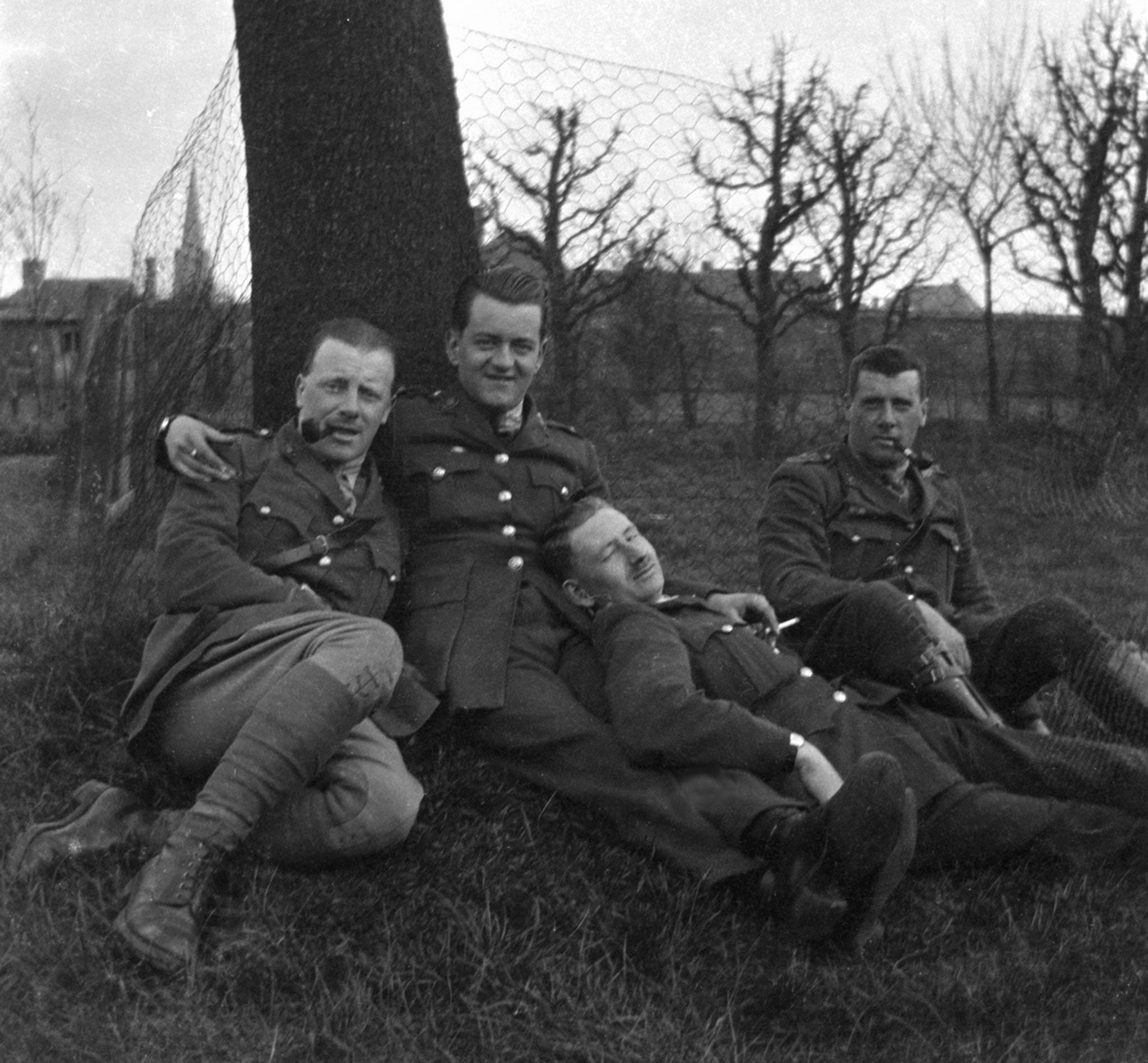
Of the brothels themselves, another British officer recalled: "The Madame took me to an eight-sided room, the walls and ceilings of which were entirely covered with mirrors. The only furniture in it was a low divan on which a pretty little blonde was displaying her charms. She welcomed me most pleasantly and later we breakfasted off an omelette, melon and champagne."
The blue-lamp brothel in the images shown here seems to have been a more threadbare establishment – possibly in a town just behind the British lines such as Amiens or Arras.
Like the vast majority of British soldiers, Lt William Noel Morgan never discussed this aspect of the war with his family. He seems rarely to have discussed his experiences in the war at all – with one exception. In his final years, he lived with the family of his daughter, Veronica Anthony. His grandson, Dr Rob Anthony, reveals: "Right at the end of his life, he would talk about the young woman he had known in France. He would become very emotional. While talking about her, he would even lapse into French."
Who was Lieutenant Morgan's French girlfriend? Her name was Renée, and a cache of letters has very recently come to light, though it has yet to be examined properly. What we do know is that both married soon after the war but they continued to write to one another until 1945.
Memories of brief physical encounters, once cherished as a refuge from the horrors of the first industrial war, had been locked away in a biscuit tin. Memories of romantic love could not, it seems, be so easily suppressed.
A History of the Great War in 100 Moments, based on our acclaimed series, is now available as an e-book. For more details and to buy the e-book, please go to independent.co.uk/ebooks
Join our commenting forum
Join thought-provoking conversations, follow other Independent readers and see their replies
Comments